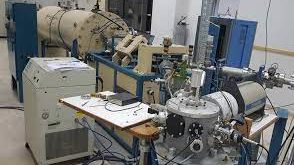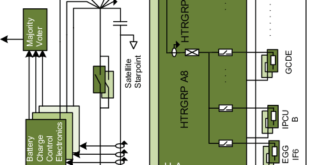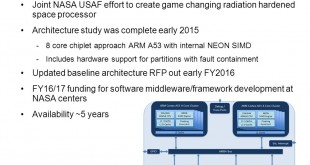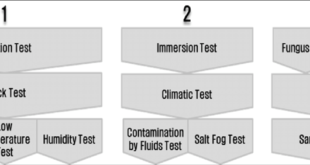Ion beam accelerators are machines providing kinetic energy to charged particles called ions, which bombard the target sample – the material to be irradiated and subsequently analyzed. The target can be a thin foil or a piece of mineral, rubber, textile, tissue, soil or metal. The sample can be an …
Read More »Monthly Archives: February 2022
Availability & Reliability of Satellite Constellation, Satellite System and Subsystems
Over the past three years, SpaceX has deployed thousands of satellites into low-Earth orbit as part of its business to beam high-speed internet service from space. But the company’s latest deployment of 49 new satellites after a Feb. 2021 launch did not go as planned. As a consequence of …
Read More »New Radiation-hardened electronics enable military small satellites in Low Earth Orbit (LEO) to deep space missions
There has been rapid growth in New Space applications like small satellites (small sats) and Low Earth Orbit (LEO) mega constellations or satellite swarms. The increased U.S. investment in military space is driving growth in classified and unclassified applications. The Satellite has a large number of electronic systems and …
Read More »Implementing AS9100 Quality Standard for Aviation, Space and Defense products and services
Quality standards are defined as documents that provide requirements, specifications, guidelines, or characteristics that can be used consistently to ensure that materials, products, processes, and services are fit for their purpose. Standards provide organizations with the shared vision, understanding, procedures, and vocabulary needed to meet the expectations of their stakeholders. Because …
Read More »Challenges for electronics for defense and aerospace and technology solutions
The Satellite has a large number of electronic systems and subsystems which are critical to the functioning and its mission. The spacecraft is divided into two sections: the platform or bus and the payload. The platform consists of the five basic subsystems that support the payload: the structural subsystem, the …
Read More »Military Specifications and Standards
Defense standards evolved from the need to ensure proper performance, maintainability and reparability (ease of MRO), and logistical usefulness of military equipment. The latter two goals (MRO and logistics) favor certain general concepts, such as interchangeability, standardization (of equipment and processes, in general), cataloging, communications, and training (to teach people …
Read More »With China engaging in massive military buildup near the Borders, India preparing to safeguard its interests.
China’s construction of military infrastructure along its border with India suggests Beijing is considering military options amidst a territorial dispute between the two countries. China’s aggressive strategy will likely prompt India to respond in kind, leading to a greater concentration of military assets along their disputed border and increasing the …
Read More »Satellite Electric Power Subsystem (EPS) is a vital subsystem providing the power required for mission
Satellite present in an orbit should be operated continuously during its life span. All the satellites require internal power in order to operate various electronic systems and communications payloads that are present in it. The Electrical Power System (EPS) is a vital subsystem whose primary role is to supply satellite …
Read More »MIL-STD-810 standards ensure electronic systems designed, manufactured, and tested to battle harsh defense and aerospace conditions
MIL-STD 810 is a Department of Defense Test Method Standard for environmental engineering considerations and laboratory tests. It is the most popular Military specification used to conduct environmental testing of military products. Given the fact that these products may be exposed to harsh or even extreme conditions, their reliability under …
Read More »Undersea Warfare Training Range (USWTR) is enhancing US Navy’s ASW training effectiveness
Anti-submarine Warfare is Critical for US Navy. Submarines still pose a threat to seaborne forces. More than 90% of joint military equipment (Army, Air Force, Marines) still flows by sea. A great deal of humanitarian aid (tsunami relief, hurricane relief, humanitarian evacuation) comes by sea. Therefore to defend our nation, …
Read More » International Defense Security & Technology Your trusted Source for News, Research and Analysis
International Defense Security & Technology Your trusted Source for News, Research and Analysis







